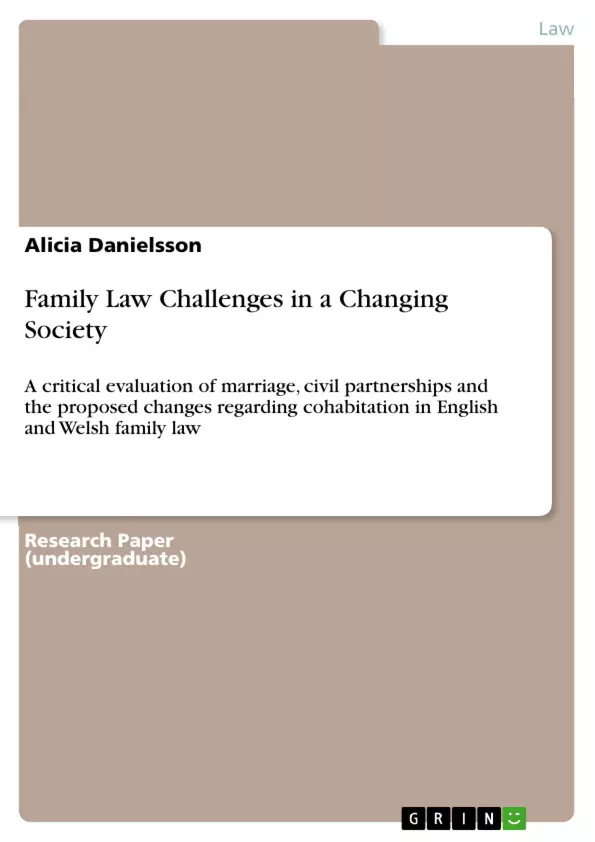There are many ways to define marriage and there are numerous perspectives on which these definitions can be based. Every country or even state has its own legal definition, each culture will have its own cultural and sociological definition, religions will have their own religious definitions and even each era will has its own anthropological definition.
The British anthropologist Eleanor Kathleen Gough Aberle defined marriage in 1959 as „a relationship established between a woman and one or more other persons, which provides that a child born to the woman under circumstances not prohibited by the rules of the relationship, is accorded full birth-status rights common to normal members of his society or social stratum.”
For statistical purposes the United Nations have recommended the following definition:
„the legal union of persons of opposite sex. The legality of the union may be established by civil, religious, or other means as recognised by the laws of each country; and irrespective of the type of marriage, each should be reported for vital statistics purposes.”
It is particularly interesting that the United Nations have added the word “legal” to their definition which provides the institution of marriage with a legal dimension. In the book “A practical treatise on the law of marriage and divorce“, Leonard Shelford explains that “Marriage, in its origin, is a contract of natural law antecedent to its becoming in civil society a civil contract, regulated and prescribed by law and endowed with civil consequences.”
However, the past decades have experienced a decline in marriages amongst the British population as well as a substantial increase of cohabiting partners, who share the same domicile without having some form of contract governing the relationship.
This has given rise to various approaches as to how relationships and families in particular are to be regulated.
The following discussion will begin by taking a look at the current situation in England and Wales. Hereafter, points 3 and 4 will provide a theoretical foundation of the development of marriage and families as well as laws and justice. Finally, the last two points will discuss the recommended reform of the laws governing cohabitation and the current marriage scepticism which is growing in feminist and liberal jurisprudence.
Inhaltsverzeichnis (Table of Contents)
- Introduction
- Marriage, Civil Partnership and Cohabitation
- The current situation in English law
- The Evolution of Families and Marriage
- The Evolution of Society and Laws
- Proposed Reforms concerning the Regulation of Cohabitation
- Why Legal Marriage is becoming obsolete in a pluralist egalitarian society
- Feminist and Liberalist Critiques of State Governed Marriages
Zielsetzung und Themenschwerpunkte (Objectives and Key Themes)
This text critically evaluates marriage, civil partnerships, and the proposed changes regarding cohabitation in English and Welsh family law. It aims to provide a comprehensive understanding of the current legal landscape and explore the historical and societal factors that have led to the evolution of family structures and legal regulations. The text also analyzes the implications of proposed reforms and explores feminist and liberal critiques of traditional marriage models.
- Evolution of family structures and marriage
- Legal regulation of stable relationships in England and Wales
- Proposed reforms concerning the regulation of cohabitation
- Feminist and liberal critiques of state-governed marriages
- The decline of legal marriage in a pluralist egalitarian society
Zusammenfassung der Kapitel (Chapter Summaries)
The introduction discusses various definitions of marriage and highlights its evolution across cultures, eras, and legal systems. It emphasizes the growing trend of cohabitation and its impact on family law.
Chapter 2 delves into the current legal situation in England and Wales, examining the legal definition and effects of marriage, civil partnerships, and cohabitation. It explores the legal frameworks governing these relationships and highlights the lack of comprehensive legal protection for cohabiting couples.
Chapter 3 traces the historical development of families and marriage across different cultures and economic systems. It explores how family structures have adapted to changing economic and social realities.
Chapter 4 examines the evolution of societal values and laws, emphasizing how these changes have impacted family law and the legal recognition of different family forms.
Chapter 5 discusses the proposed reforms aimed at regulating cohabitation, outlining the rationale behind these changes and their potential impact on the legal landscape.
Chapter 6 analyzes the growing skepticism towards legal marriage in a pluralist egalitarian society. It explores feminist and liberal critiques of traditional marriage models and examines the rise of alternative forms of relationships.
Schlüsselwörter (Keywords)
The text focuses on key concepts such as marriage, civil partnership, cohabitation, family law, legal regulation, societal change, feminist critique, liberal jurisprudence, and the evolution of family structures. It explores the legal and social challenges faced by modern families and the need for reform in family law to reflect changing societal values and practices.
Frequently Asked Questions: Family Law Challenges
How does English law define marriage?
Marriage is viewed as a legal union and a civil contract regulated by law, which carries specific civil consequences and rights.
What is the difference between marriage and cohabitation?
Unlike marriage, cohabitation lacks a comprehensive legal framework in England and Wales, leaving partners with fewer legal protections if the relationship ends.
What are the main critiques of state-governed marriage?
Feminist and liberal jurisprudence often criticize traditional marriage models for being outdated in a pluralist, egalitarian society.
Why is legal marriage declining in the UK?
Societal shifts have led to a decrease in marriages and a substantial increase in cohabiting partners who choose not to enter formal legal contracts.
What reforms are proposed for cohabitation?
Proposed reforms aim to provide better legal regulation and protection for stable cohabiting relationships to reflect modern family structures.
- Arbeit zitieren
- Alicia Danielsson (Autor:in), 2014, Family Law Challenges in a Changing Society, München, GRIN Verlag, https://www.grin.com/document/278323



